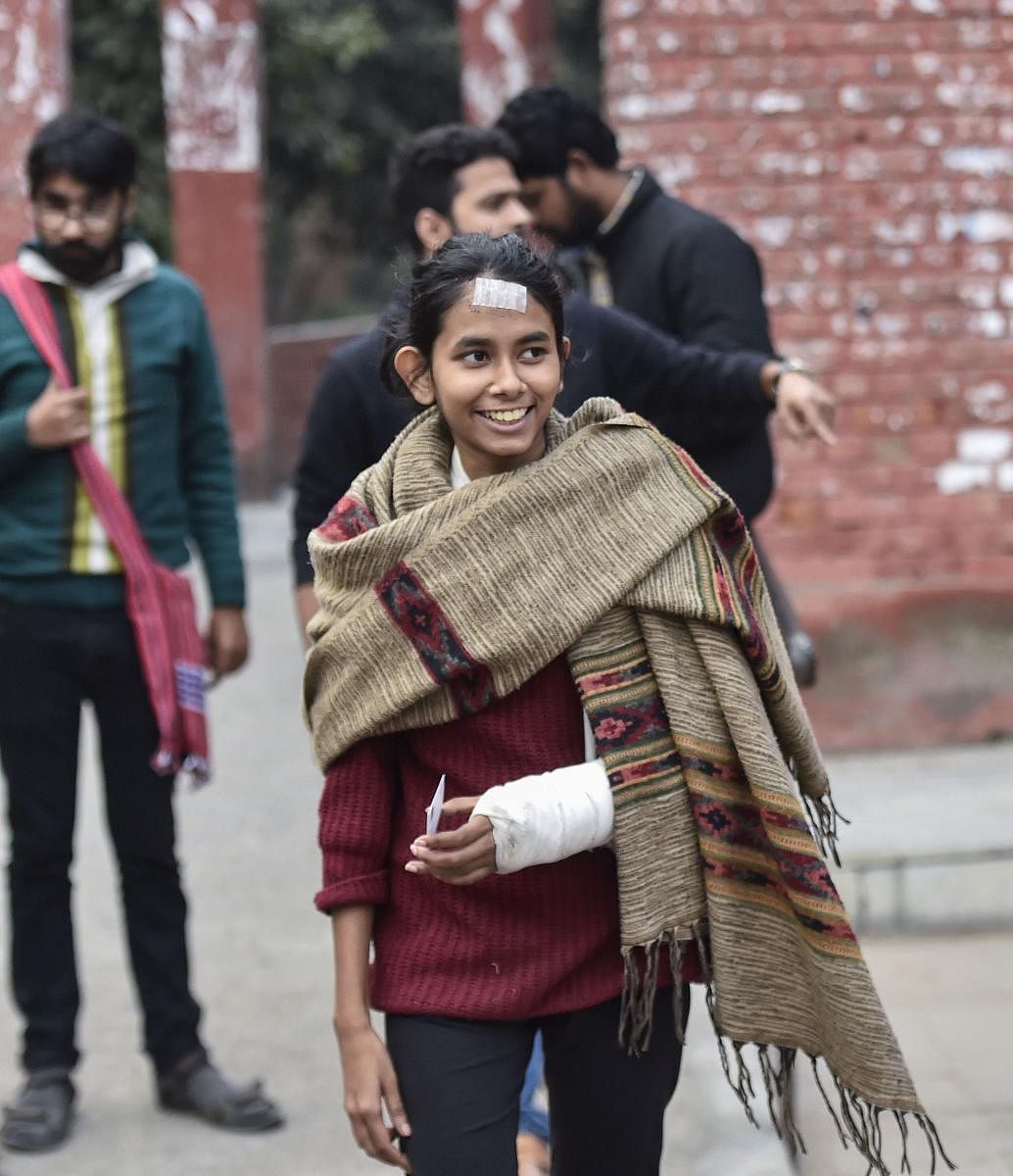
Jawaharlal Nehru University Students Union president Aishe Ghosh said on Saturday that had society raised its voice against the scrapping of Article 370, "we would not have had to see this day".
Ghosh, who was injured in an attack by masked assailants on students on the campus of JNU in Delhi on January 5, was speaking at a panel discussion on `Students as the Vanguard' at `Mumbai Collective' here.
"The first attack on our Constitution was when Article 370 was removed in Kashmir. Had we raised our voice then, we would not have had to see this day," she said, referring to the current situation in the country.
Provisions of the Article 370 of the Constitution, which gave a special status to Jammu and Kashmir, were abrogated last August and the state was bifurcated into two Union Territories.
"This is not the fight of only students and they cannot end it alone, but they are hoping that every section of society will rise and fight together," Ghosh said.
"Why do we have to wait for a student to die, to commit suicide, to be killed? Or for an Aishe Ghosh to be hit by an iron rod? This is not just a fight only for students," she said.
When the history of the current phase of politics in our country is written, the women from Shaheen Bagh and elsewhere in the country who are leading the protest (against the Citizenship (Amendment) Act) will feature prominently, she said.
Being a good student is not about only doing well in examinations, Ghosh said.
"If we are learning democracy in civics, then we need to implement it in society. A student is not someone who just reads about Hitler. Education and being a good student is to see similarities and stop it from happening in India," she said.
It was the "system" in the county which claimed the lives of Rohith Vemula and Fathima Latif (the IIT Madras student who committed suicide), Ghosh contended.
She also spoke about JNU student Najeeb Ahmed, who went missing in October 2016.
"If we had raised voice then that Islamophobia is existing in our system, the current situation would not have arisen," Ghosh stated.
During an earlier session, writer-director Rasika Agashe said she was not "scared of" Prime Minister Narendra Modi or Home Minister Amit Shah, but she was scared of "hate- filled kids who now have guns".
She was apparently referring to incidents of firing outside Jamia Millia Islamia and at Shaheen Bagh protest venue in Delhi.
"We must figure out how we are to root out this hatred," she said.